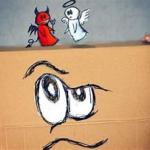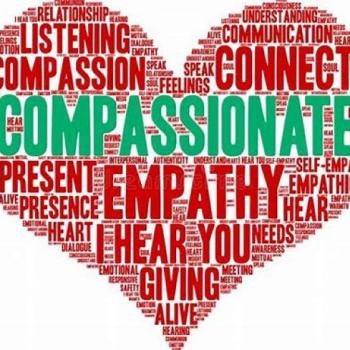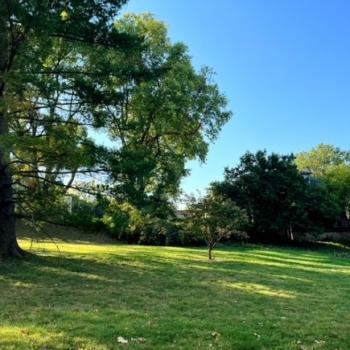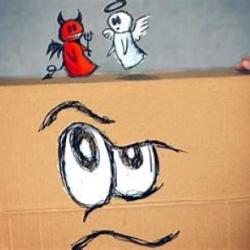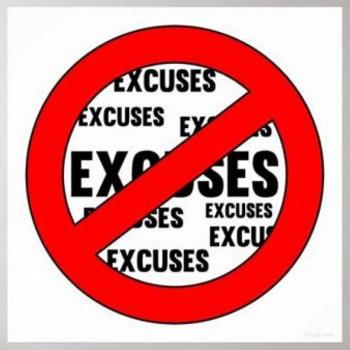They’re Evil! We’re the Way!
“They’re Evil!” “We’re the Way!” “They’re coming for you!” “We need to defend ourselves!” “We need to hide!” “We need to get them before they get us!” “It’s imperative!” “It’s either us or them!” “Blah… Blah… Blah…”
We’ve all heard these on the news, from our neighbors, and in political ads. “It’s doomsday; the world is coming to an end,” and all the nuclear option rhetoric we’ve come to loath and cringe in the political cycle. Anyone trying to sway the public knows demonizing the “other” is the easiest way to create animosity toward them and gain votes for your side.
Ask any person today what they’re afraid of, and you’ll get a litany of finger-pointing and wagging rhetoric. They will come across as well-read, well-versed, and well-groomed. But dig a little deeper, and you will find they are simply parroting what they heard from someone else. They, themselves, know virtually nothing about the subject. They don’t know the facts, nor have they taken the time to hear a balanced report on the subject. Until someone else—who has an agenda—pointed out how terrible something was to them, they’d never heard of it, let alone feared it!
So why do we fall for it? Why do we fall for the “Chicken Little” mentality, particularly around election time?

Nature
The answer is simple—human nature. We are wired to react to fear. And what’s the fastest way to rally a group around a cause? Fear. Fear is the biggest motivator after love. Fear drives us; it makes us feel alive. It raises our blood pressure and causes our eyes to dilate. Fear makes the blood course through our veins. It makes us want to either fight or flee. In a very odd way, fear is more potent than love. It causes us to feel deeply, giving us a sense of purpose.
We Like to Be Scared
Humans like adrenaline. We like the rush it gives us. Horror films, roller coasters, car races… They all cause that exhilaration that makes us feel alive. Many lifetimes ago, people found power in fear and began to turn other people’s fear into power. A power that they could pull out and wield against their enemies anytime they wanted. Here’s What Aristotle had to say about the power of fear:
Fear may be defined as a pain or disturbance due to a mental picture of some destructive or painful evil in the future. Of destructive or painful evils only, for there are some evils, e.g., wickedness or stupidity, the prospect of which does not frighten us: I mean only such as amount to great pains or losses. And even these only if they appear not remote but so near as imminent: we do not fear things that are a long way off. For instance, we all know we shall die, but we are not troubled thereby because death is not close at hand…
…fear is caused by whatever we feel has the incredible power of destroying us or harming us in ways that tend to cause us great pain. Hence, the very indications of such things are terrible, making us feel that the horrible thing itself is close at hand…
…the approach of what is terrible is just what we mean by ‘danger.’ Such indications are the enmity and anger of people who have the power to do something to us, for it is plain that they have the will to do it, so they are on the point of doing it. Also, injustice is the possession of power, for the unjust man’s will to do evil makes him unjust. Also, outraged virtue is in possession of power; it is plain that, when outraged, it always has the will to retaliate, and now it has the power to do so.
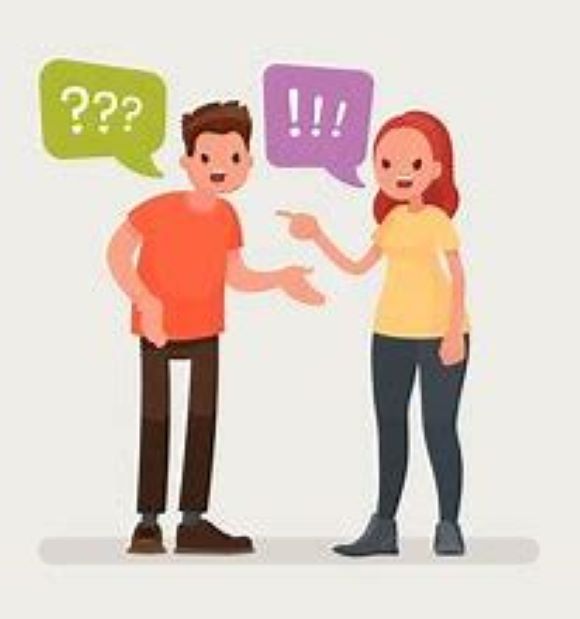
Fear Used for Good or Evil
There is a good fear and an evil fear. The hard part is knowing the difference. Honest fear can cause us to plan and take stock of who we are and what we do. The Bible repeatedly tells us to have a healthy fear of doing what God wills us to do. What are the consequences if we don’t?
Simple: separation from God and all that He is, namely, Love! Think about it for a second. What is the opposite of love? No. It’s not hate. It’s the combination of pride and fear. What is God and His biggest attributes? He is love, and His charter emanates faith and humility. He reaches down to us and wants a relationship with us even after we have turned our backs on Him, after we have cursed at Him, after we have forsaken Him.
When it comes to fear, we should fear tangible things we can see and feel. Things that are tested and proven—forest fires, hurricanes, diseases. We should do all we can to cover our bases—if not able to stop these things—and ensure we are prepared for them. Fear, used in this way, is good. It’s proactive. It’s sensible.
But when something sounds irrational and is sold as fact—instead of immediately running toward the fear and embracing its leader—we should stop, research, and find out if we’re being used. Think about it, What does every great dictator in every country, company, and congregation have in common? They ran on a platform of fear. What about the author of fear, Satan? Some think when he told God, “No! I will not serve!” the Devil did so from a place of fear. Lucifer thought that God was putting humans above angels and feared that God was not to be trusted. Ever since, Satan has embraced and encouraged fear. He wielded it as his greatest weapon. Fear causes division, animosity, angst, and mistrust. Fear causes terror, aggression, and suspicion. It feeds on panic, worry, and dread. Simply put, fear is the opposite of love. It causes us to hate and to become selfish. It enslaves whomever it overtakes.
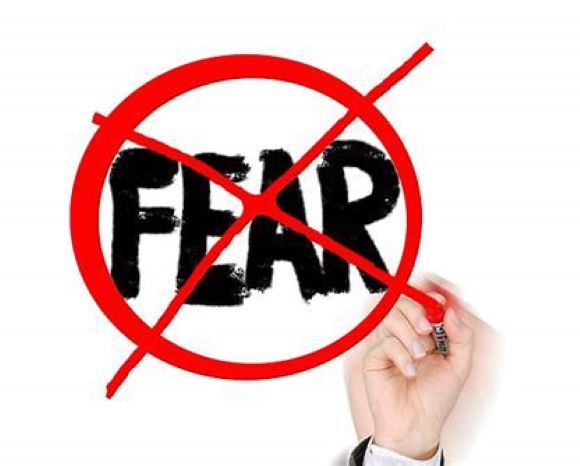
How do We Break the Chains?
One phrase is used more than any other in the Bible and is used 365 times. It was the first phrase the newly elected pope, John Paul II, uttered from the loggia of St. Peters in 1978. “Be not afraid.” This is a bold statement, “Be not afraid.” It intimates to several things. One point is we must have faith in something or a certain knowledge that that thing will work out. Another point is fear is a choice. We can choose not to fear. We can choose to stand up to fear, stare it in the eye, and combat it on our terms. Notice the words “fear” and “afraid” are different. You may (and probably will be) afraid when you stand up to fear. But being afraid makes us aware of the mistakes that could be made. It’s very important not to let being afraid overtake you and to allow long-term fear to seep in. This, again, is where faith takes the lead.
Where does faith in anything come from? Discerning the truth. Looking for the truth. Knowing the truth. Not the so-called “truth” that the fear mongers are selling you, after all, they have an agenda. No. Do your research. Discerned truth that brings peace of mind, body, and spirit. Look for the “Truth, the Way, the Life…” Go out. Find the truth, and “Be not afraid.”


